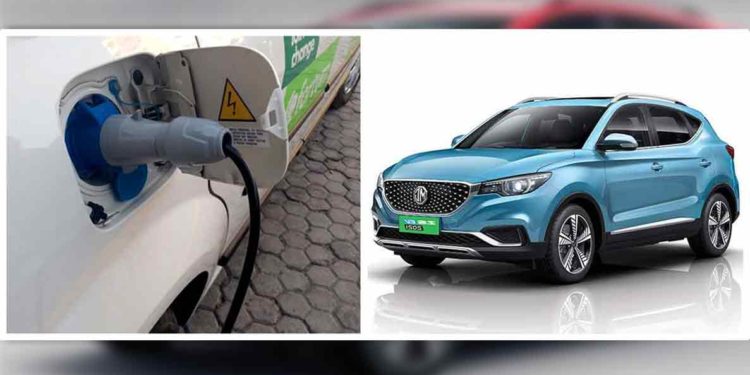In the Union Budget 2022-23, Finance Minister Nirmala Sitharaman announced that the Central Government will develop special mobility zones for electric vehicles (EV). The Central Government will also formulate a new battery swapping technology in the coming fiscal year. Battery swapping technology will help save time taken in charging the embedded batteries in EVs. Special mobility zones for electric vehicles will be developed. The Society of Manufacturers of Electric Vehicles (SMEV) had put forward a detailed report that is covered in the budget.
India’s first zero polluting electric vehicle for urban mobility was commercialized in June 2001. But it has taken fifteen years for electric vehicles to be frequented on the Vizag roads. This is due to the high costs and lack of charging facilities. In Visakhapatnam, the EV charging point at the Hindustan Petroleum Siripuram Bunk has remained non-functional for quite a while now. Apart from this, the availability of other EV charging points in Vizag is quite low. On the other hand, the Greater Visakhapatnam Municipal Corporation (GVMC) started using 30 electric cars in the Visakhapatnam District in 2019.
The initiative by the Union Government for battery swapping technology will further bolster the usage of electric vehicles in India. Battery swapping allows the consumers to replace their depleted batteries with fully-charged ones at dedicated stations. These electric vehicles represent a sustainable way forward for the Indian automobile sector with zero emissions and pollutants. The electric mobility sector is a large space that Indian industries can capture before the international automobile giants can invade the market with economical vehicles. This initiative will boost EV infrastructure and the EV ecosystem, to achieve broader decarbonization. During the Parliament session, the Finance Minister said that Indian cities will see areas that may be no-go zones for Internal Combustion Engine (ICE) vehicles. Taking the space constraints into consideration, charging stations will be set up in urban areas and highways.
Most frequently seen Electric Vehicles on Vizag roads
#1 Morris Garages ZS
- Battery Capacity: 44.5 KWh
- Distance per Charge: 340km/full charge
- Recharge Time: Fast charging in 50 minutes and normal charging takes 6-8 hours
#2 Tata Tigor
- Battery Capacity: 21.5 KWh
- Distance per Charge:142 km/full charge
- Recharge Time: Fast charging in 90 minutes and normal charging takes 6 hours.
#3 Tata Nexon
- Battery Capacity: 30.2 KWh
- Distance per Charge: 312 km/full charge
- Recharge Time: 0-80% charge in 60 minutes with a fast charger
#4 Nissan Leaf
- Battery Capacity: 50 kWh and 75 kWh
- Distance per Charge: 400 km/full charge
- Recharge Time: Normal charging in 10 hours
#5 Mahindra e-KUV100
- Battery Capacity:15.9kWh
- Distance per Charge:147 km/full charge
- Recharge Time: Fast charging in 110 minutes and normal charging in 7 hours
#6 Hyundai Kona Electric
- Battery Capacity: 39.2kWh
- Distance per Charge: 452 km/full charge
- Recharge Time: 57 minutes fast charging and normal charging in 6 hours
#7 Tata Tiago EV
- Battery Capacity: 30kW
- Distance per Charge: 130 km/full charge
- Recharge Time: Fast charging in 2 hours
#8 Ather 450X
- Battery Capacity: 6 kW
- Distance per Charge:116km/full charge
- Recharge Time: Fast charging in 5.45 hours
These are some of the electric vehicles frequenting Vizag roads. Although there are limited options, there is scope for new EV’s to be launched with the implementation of battery swapping technology.










Discussion about this post